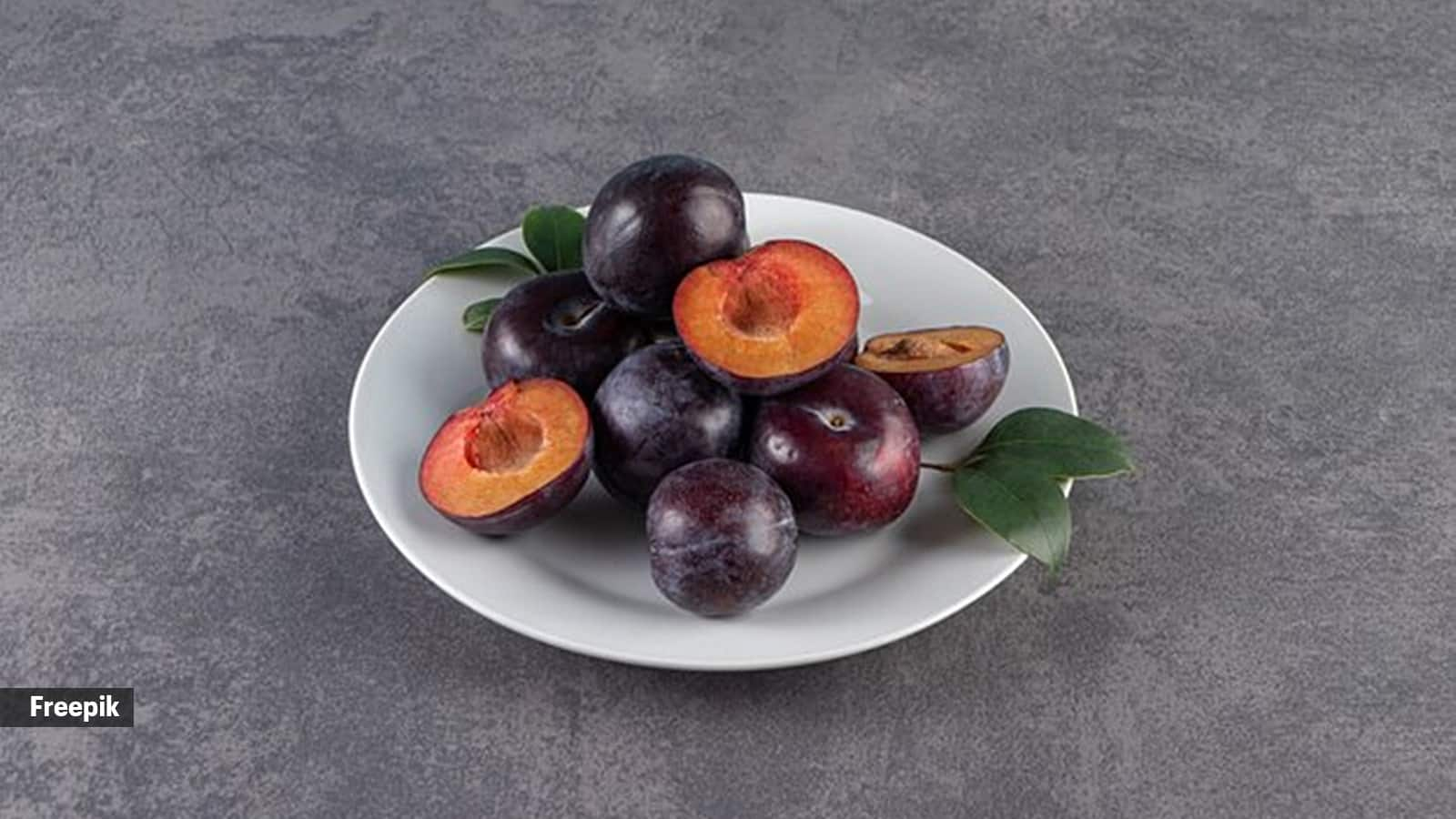
NUTRITION ALERT: HERE’S WHAT A 100-GRAM SERVING OF INDIAN PLUM OR JUJUBE CONTAINS
Indian Plum is known as Apple Ber or Jujube. (Source: Freepik)
Indian plum, also known as jujube or apple ber, is a rich source of essential nutrients. These sweet fruits can be dried and used in desserts or eaten fresh separately as a healthy snack. When eaten fresh, they’re low in calories and high in fibre and antioxidants.
Due to their sweet taste and chewy texture, they’re often dried and used in candies and desserts in parts of Asia where they commonly grow.
N Lakshmi, senior dietician, Kamineni Hospitals, Hyderabad, elaborated on the nutrition profile and health benefits of Indian plums and if there are any precautions we must take.
Nutritional profile of Indian plum
A 100-gram serving of Indian plum provides the following nutrients, according to Lakshmi.
- Calories: Approximately 79 per 100 grams
- Carbohydrates: Around 20 grams
- Protein: Roughly 1.2 grams
- Fat: Less than 1 gram
- Dietary fibre: About 6 grams
- Vitamin C: 69 milligrams (115% of the daily recommended intake)
- Vitamin A: 9% of the daily recommended intake
- Vitamin B1 (Thiamine): 0.03 milligrams
- Vitamin B2 (Riboflavin): 0.04 milligrams
- Vitamin B3 (Niacin): 0.9 milligrams
- Calcium: Approximately 30 milligrams
- Iron: Around 0.48 milligrams
- Phosphorus: Approximately 20 milligrams
- Potassium: About 250 milligrams
Health benefits of Indian plum
Indian plum offers a plethora of health benefits, said Laksmi, explaining them in detail:
- Reduces the risk of chronic diseases: Loaded with antioxidants, particularly vitamin C, it helps protect the body from oxidative stress and reduces the risk of chronic diseases.
- Boosts immunity: Its high vitamin C content also boosts immunity, aiding the body in fighting off infections and illnesses.
Supports digestion: It supports digestive health by alleviating constipation, acting as a natural laxative and promoting regular bowel movements. (Source: Freepik)
- Lowers cholesterol levels: Besides its digestive benefits, the dietary fibre Indian plum can contribute to better cardiovascular health by reducing cholesterol levels and regulating blood pressure, thanks to its potassium content.
- Reduces ageing: On the beauty front, the antioxidants in Indian plum protect the skin from premature ageing and free radical damage, promoting healthier, more youthful-looking skin.
- Reduces stress: Finally, jujube’s compounds have a calming effect that can help reduce stress and anxiety, facilitating better sleep and overall well-being.
Can people with diabetes consume Indian plums?
Indian plum, or jujube, can be consumed by people with diabetes in moderation as part of a well-balanced diet, noted Lakshmi.
“While it does contain carbohydrates and natural sugars, its relatively low glycemic index means it has a slower and less significant impact on blood sugar levels compared to high-GI foods,” she added.
To manage blood sugar effectively, people with diabetes should focus on portion control, incorporating jujube into balanced meals with fibre, protein, and healthy fats. It’s important to monitor individual responses and avoid consuming jujube on an empty stomach to prevent rapid blood sugar spikes.
Is it beneficial for pregnant women?
Indian plum, or jujube, can benefit pregnant women when consumed in moderation as part of a well-balanced diet. It provides essential nutrients, such as vitamin C, vitamin A, potassium, and dietary fibre, which are essential for maternal and fetal health, explained Lakshmi.
She added that jujube’s iron content could help prevent anaemia during pregnancy, while its dietary fibre supports digestive health, alleviating common issues like constipation. Furthermore, its antioxidant-rich nature, especially vitamin C, can combat oxidative stress.
However, pregnant women should be mindful of portion control to avoid excessive carbohydrate intake affecting blood sugar levels. (Source: Freepik)
Precautions to keep in mind
It’s important to note that while allergies are uncommon, some individuals may experience itching or skin rashes, mainly if they have known food allergies, noted Lakshmi.
Additionally, overconsumption of Indian plum can lead to a laxative effect, potentially resulting in stomach cramps or diarrhoea. To enjoy its benefits, Lakshmi advised consuming it in moderation and being cautious if you have a history of allergies or sensitivities.
Myths and facts
Lakshmi debunked the following myths surrounding the fruit.
Myth: Indian plum is very high in sugar and should be avoided by diabetics.
Fact: While Indian plum does contain natural sugars, it has a moderate glycemic index, making it suitable for diabetics in moderation.
Myth: Eating Indian plum can lead to weight gain.
Fact: Indian plum, when consumed in reasonable amounts, is not likely to contribute to weight gain. Its high fibre content can even support weight management.
Myth: Indian plum is a remedy for all digestive problems.
Fact: While Indian plum can aid digestion and alleviate constipation for many people, it might not be a cure-all for severe digestive issues.
📣 For more lifestyle news, follow us on Instagram | Twitter | Facebook and don't miss out on the latest updates!
2023-10-26T13:24:25Z dg43tfdfdgfd